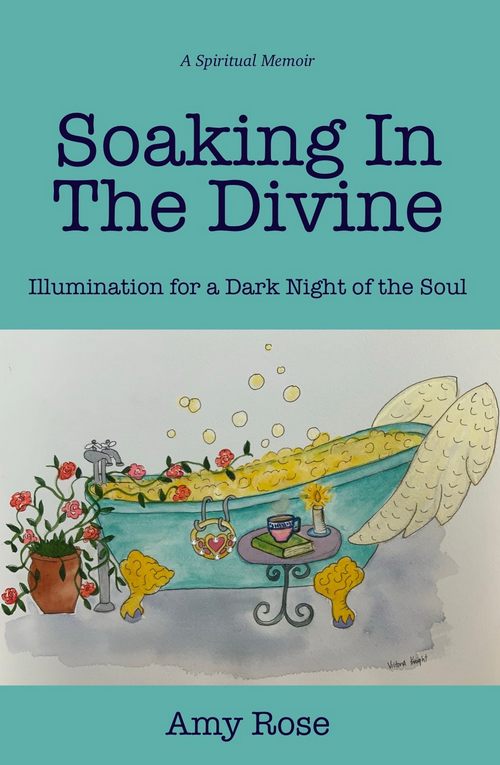What do you think of when you hear the word trauma?
Most people associate trauma with events like a car accident, an unexpected death, or an assault. These experiences are all powerful examples of shock trauma.
Another form of trauma, called attachment trauma, is an experience where you felt unsafe, unseen, unheard, and helpless. You sensed your presence didn’t matter, or you didn’t belong.
ALL of us have experienced trauma. Everyone responds differently.
Your nervous system records every stressful experience you’ve ever had (even the ones you don’t remember).
Trauma is like an invisible tattoo stored in your body’s nervous system. The scar left behind when you experience something so painful that your system is overwhelmed and can’t process it.
This phenomenon is beautifully summarized in a prominent book I recommend to my clients called The Body Keeps the Score.

Photo by Galen Fulford
How you cope, and the amount of support you have can determine how trauma affects you.
We cope, adapt, and respond to the stress of a traumatic event in whatever way ensures our survival. We have four typical responses to trauma.
- Fight: You stand up and protect yourself.
- Flee: You do whatever you can to get away from the stressful situation.
- Freeze: If you can’t get away, you freeze and feel “numb.”
- Appease: To reduce conflict and stress, you do whatever you can to stop another person from being angry or upset.
When you’re no longer experiencing that level of stress…
You may continue to respond to present-day stressors in the same manner. So, the responses that helped you cope and survive in the past may be maladaptive in the present because they impact your ability to relate and connect with others. These old patterns interrupt your ability to get your needs met.
If you respond by fighting, you may have anger issues or lose relationships easily.
If you respond by fleeing, you may disappear, feel invisible, or disengage from relationships you feel triggered by. (So, even if you are sitting next to someone, they may experience you as distant.)
If you respond by freezing, you may “feel numb” and disconnected from your emotions and may “live in your head,” often feeling lonely and finding it hard to relate to others.
If you respond by appeasing, you expend energy pleasing others and sacrificing your own needs to keep the peace and avoid conflict.
Trauma can make you want to isolate yourself when you’re hurting, not allowing yourself to be vulnerable or ask for help. You may pride yourself that you “don’t need anyone.” Or spend most of your time focusing on the future “when things get better” to avoid dealing with the present.
What happens to our bodies when we are overwhelmed by a stressful event?
When you experience something overwhelming, your nervous system stores whatever emotion you can’t process in your body. It remains frozen inside, and just like the food in your freezer, it takes energy and resources to keep this energy frozen.
Imagine starting to watch a film on your computer but then deciding to mute it and move that window to the side of your screen. Then you start another film, mute it, and move that to the side as well. Once you have several movies playing simultaneously (that you can’t see or hear anymore), your computer won’t have enough energy to operate. The computer’s operating system will start to freeze up to the point that it can no longer stream data and work effectively.
The same is true for you when you have a lot of frozen memories (movies) stored in your nervous system.
Symptoms emerge when you store all that energy as frozen pain inside you.
Call me now to schedule your free 15-minute consultation, so I can learn more about how I can help. Then once you feel comfortable, we’ll get started: Call (813) 336-2173 or click here to schedule an appointment.
You may experience these common symptoms of past trauma such as:
- Intrusive memories
- Flashbacks
- Avoidance of certain people and situations
- Difficulty focusing or sleeping
- Mood swings or intense emotion
- Feeling numb or disconnected
- Being easily irritated or startled
Let’s talk about how we can heal from trauma.
You are not alone. We’ll do this together.
Our journey will begin by creating a warm, supportive relationship where you feel safe.
Then I’ll help you access the wiser, more-resourced part of you that can witness the painful events of your past with compassion. This process will let you give those hurt parts of you the support and resources you needed at the time of the trauma but didn’t receive.
Just like ice melts in the warmth of the sun, the frozen pain inside of you will start to melt and dissolve in the light of compassion and loving-kindness, allowing it to metabolize and transform into another form of energy that your system can use to heal.
You’ll find that you have increased energy, renewed creativity, and the ability to connect more easily with others. You’ll be able to give and receive love and have joy flow into your life.
 Healing trauma is a beautiful, sacred process…
Healing trauma is a beautiful, sacred process…
And it’s completely natural. You were born with an innate capacity to heal so that beauty and new life can reemerge. Think of a daffodil poking its head through the snow, a sign that spring is coming, and soon, new life will burst into bloom.
Even in the darkest and coldest winters within, the light inside you can melt those frozen parts. You’ll discover that the seeds of hope and healing planted in your pain will start to spring forth.
Let’s start this new season of your life – a season of beauty, potential, and hope.
Learn more about My Approaches to Healing Trauma.
Call me now to schedule your free 15-minute consultation, so I can learn more about how I can help. Then once you feel comfortable, we’ll get started: Call (813) 336-2173 or click here to schedule an appointment.



